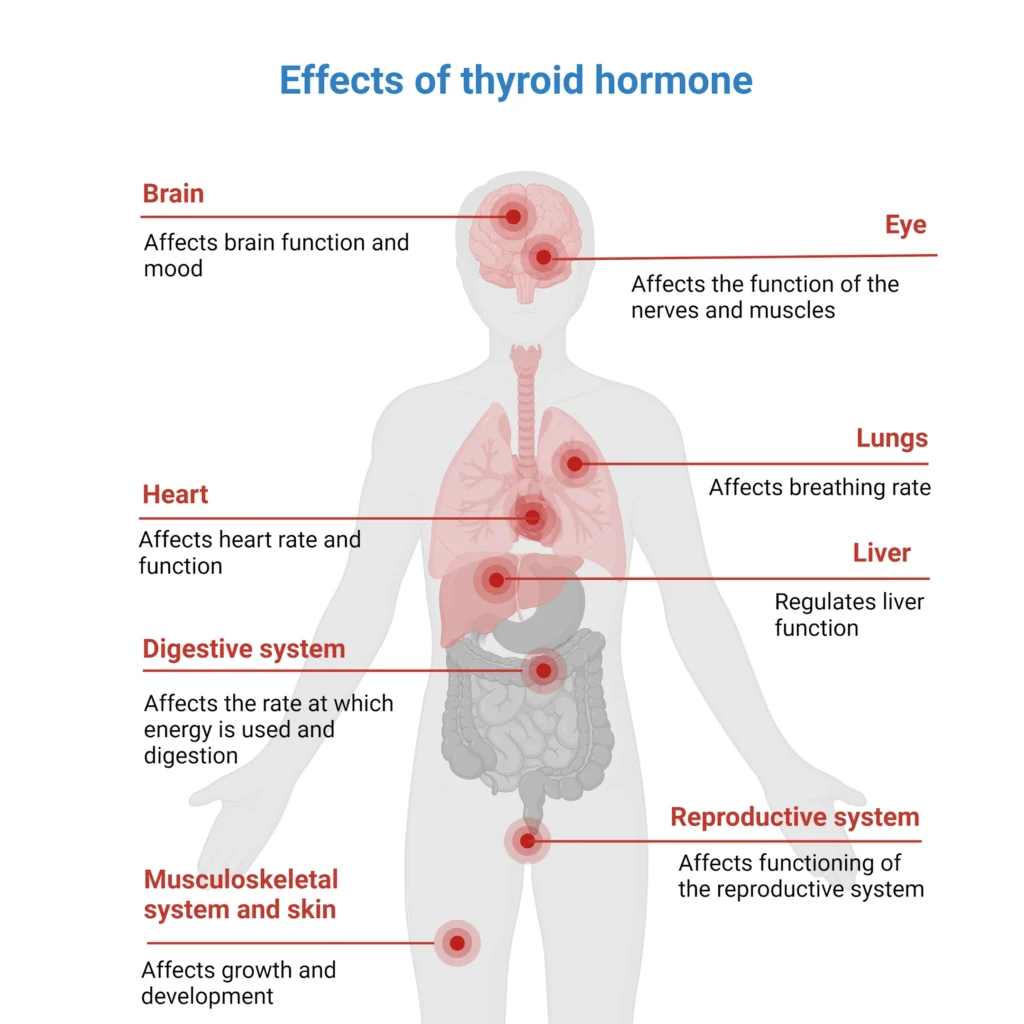
Your thyroid is a small, butterfly-shaped gland located at the base of your neck. Though small in size, it plays a major role in regulating your body’s metabolism by producing hormones that influence everything from your heart rate to energy levels. When your thyroid doesn’t function properly, it can lead to two main types of disorders: hypothyroidism (underactive thyroid) and hyperthyroidism (overactive thyroid).
What Is Thyroid Dysfunction?
Underactive Thyroid (Hypothyroidism):
This occurs when the thyroid doesn’t produce enough hormones. As a result, many of the body’s functions slow down. It often develops gradually and may go unnoticed for some time.
Overactive Thyroid (Hyperthyroidism):
This condition results from the thyroid producing too much hormone, causing an overactive metabolism. It speeds up various bodily functions and can affect multiple systems at once.
Recognizing the Symptoms
Because thyroid hormones affect almost every part of the body, symptoms can be wide-ranging and may vary in severity.
Signs of an Underactive Thyroid:
Fatigue: Constant tiredness, even after rest.
Weight Gain: Despite a stable or reduced appetite.
Cold Intolerance: Feeling unusually cold, even in warm environments.
Constipation: Slowed digestion.
Dry Skin and Hair: Rough skin and thinning, brittle hair.
Muscle Weakness and Cramps: Especially in the arms and legs.
Low Mood or Depression: A sense of sadness or mental sluggishness.
Slow Heart Rate (Bradycardia): Noticeably slower pulse.
Irregular or Heavy Periods: Especially common in women.
Memory and Concentration Issues: “Brain fog” or forgetfulness.
Signs of an Overactive Thyroid:
Rapid Heartbeat (Palpitations): Often accompanied by chest discomfort.
Unintentional Weight Loss: Even with increased appetite.
Heat Intolerance and Excessive Sweating: Feeling hot and sweaty in normal conditions.
Muscle Weakness and Tremors: Particularly in the upper limbs.
Nervousness or Irritability: Feeling anxious or emotionally reactive.
Insomnia: Difficulty falling or staying asleep.
Menstrual Irregularities: Lighter or missed periods.
Goiter: Swelling at the base of the neck.
Eye Symptoms: Bulging eyes, dryness, or vision problems (especially in Graves’ disease).
How Is Thyroid Disease Diagnosed?
Diagnosing thyroid problems usually involves a combination of:
Physical Examination: Checking for swelling, irregularities, or tremors.
Blood Tests: Measuring levels of thyroid hormones (TSH, T3, T4).
Imaging Tests: Such as ultrasound or radioactive iodine uptake scans to evaluate structure and function.
Fine Needle Biopsy: If nodules are present and need further investigation.
Early diagnosis is key to preventing complications and managing symptoms effectively.
Treatment Options
“Fixing” your thyroid, in the sense of managing or treating thyroid conditions, can significantly improve your overall well-being and quality of life.
Thyroid disorders, both underactive (hypothyroidism) and overactive (hyperthyroidism), can cause a wide range of symptoms impacting physical and mental health.
Effective management, often involving medication, lifestyle adjustments, and sometimes surgery, can alleviate these symptoms and lead to a more balanced and healthier life.


Other supplements that assist with efficient thyroid function are:
D3, Selenium, iron, Vit B1, B6, B12, Tyrosine, Iodine.
Come in to pur clinic for a comprehensive check looking at bloods and history. Eg signs of low Tyrosine are fatigue, attention deficit, procrastination, indecision, boredom.





